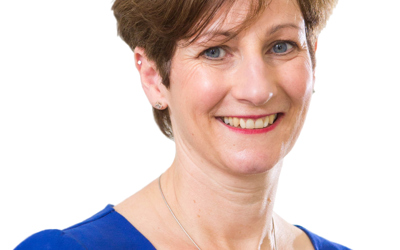When personal trauma meets workplace stress
*This blog discusses miscarriage and related issues – readers may find the content distressing*
In the second of our blogs to mark Stress Awareness Month, Laura Meldrum, Business Development Associate at HM Connect, discusses how her traumatic personal circumstances also presented challenges at work.
One in four pregnancies end in miscarriage. When we hear statistics like that, we don’t often think of ourselves as being in the minority. However, with the majority of the profession female, and given the profound impact of baby loss on both mothers and fathers, I want to take some time to speak about a subject that impacts such a significant number of us and undoubtedly exacerbates the ordinary stress of working life as a lawyer.
My husband and I have lost three babies to miscarriage. I’ve spent 24 weeks of my life pregnant with babies that I didn’t end up with in my arms, and these experiences occurred at a time in my life when I was an employment lawyer working hard for my clients.
My first miscarriage occurred around 18 months after the birth of my little boy, Harrison. Having successfully delivered a baby the first time I fell pregnant, I expected wholeheartedly that any future pregnancy would be successful and lead to a sibling for my little boy. I was devastated when this was not the case and wondered what I had done to cause this. I required around a month away from the office on that occasion to come to terms with my loss and to heal from both the physical and mental trauma.
On the second occasion I lost a baby, I was representing a client in an Employment Tribunal around 70 miles from where I lived. I discovered I was miscarrying just before my case was called and represented my client despite that knowledge throughout the hearing. While the immediate loss was difficult to come to terms with, I felt on that occasion I did not require time off work and actually the opposite was true – to be busy at work would occupy my mind and help me cope.
My third loss was particularly devastating, given that I had no indication there was anything wrong until it was discovered at a scan at around 10 weeks gestation that our baby had died around a week earlier. This loss happened at the outset of the pandemic and required admission to hospital while also being discovered to be a molar pregnancy.
As a professional person, I doubted that I could express I was struggling mentally because I assumed that this would be viewed as a weakness by my colleagues and clients. I feel strongly now that, in the main, this is untrue. Having said that, I think that there are experiences within our profession where the necessary support is not afforded to our colleagues experiencing baby loss, which further compounds the impact this negative stress has on our mental wellbeing.
Fortunately for me, due to the supportive team environment I had within the firm that I worked within at that time, I felt comfortable with sharing the news of my loss and the mental health struggles that I experienced as a result. I’d like for that to be replicated across the profession and for firms to consider putting in place miscarriage policies which facilitate supportive conversations and consistency in approach.
Having experienced baby loss on three occasions, I have come to learn that not only do we all deal with experiences like this differently, but we also deal with our own individual experiences differently depending on what is happening in our personal lives at any one given time. Firms should support people back to work by being responsive to their individual needs and showing flexibility wherever possible.
The Miscarriage Association website is a useful resource providing information on miscarriage and the workplace as well as a template miscarriage policy. There are also wonderful local charities to me including Held In Our Hearts (Edinburgh) and Baby Loss Retreat (Lanarkshire) who offer much needed counselling and support to bereaved families.
For clarity, this blog makes reference to miscarriage – meaning the death of a baby before the end of the 24th week of pregnancy. Individuals do not qualify for maternity/paternity leave or related pay if their baby dies before the end of the 24th week of pregnancy.

Lawscot Wellbeing
Leading emotional wellbeing for Scottish solicitors and their employees across Scotland, England and Wales and beyond.


